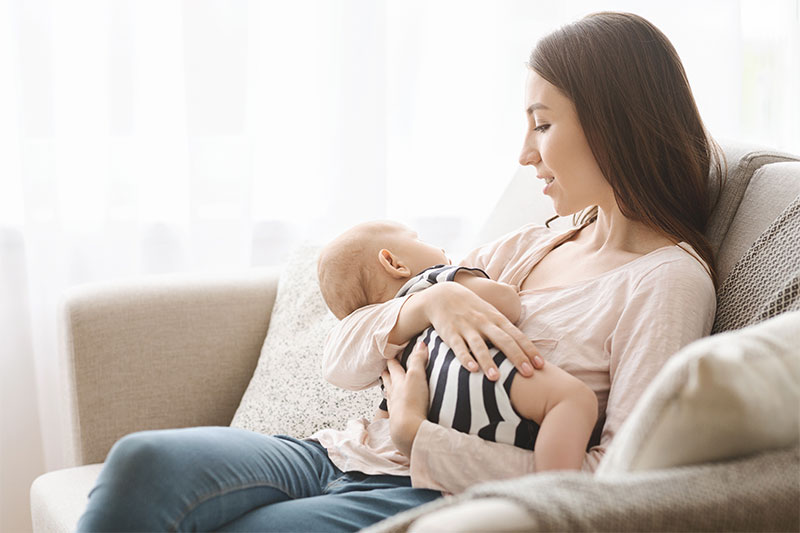Eating well while breastfeeding
During pregnancy, many women will pay close attention to their diet to ensure that the baby’s growth is optimal. However, what happens after the pregnant woman has given birth and is breastfeeding her baby?
During the first month after delivery, rapid weight loss, or more than 2 kg per month, is not recommended as this could reduce the production of breast milk. Moreover, the energy needs of the breastfeeding woman are about 450 kcal more than the needs before pregnancy; this represents, for example, one more serving of dairy, one serving more starch and one serving more meat and alternatives per day. In fact, some studies have shown that a dietary intake of less than 1500 kcal could decrease the production of breast milk.
Rest assured, you won’t need to calculate your calorie intake because your body will give you more signal of hunger. You will simply have to listen to your body and make sure you have your 3 meals and snacks during the day. After the first month, a gradual weight loss of between 1 and 2 kg will have no adverse effect on the production of breast milk.
On the other hand, the type of fat consumed in the mother’s diet has a direct impact on the quality of fat present in breast milk. Thus, by emphasizing the good fats found in olive oil, canola, nuts and oily fish (salmon, sardines, trout, herring and mackerel), this will help the development of the baby’s brain.
With the exception of coffee and alcohol, no dietary restrictions are recommended for a breastfeeding woman unless the baby has any allergy, in which cases it would be important to consult a nutritionist. You can contact us if you have any questions!




